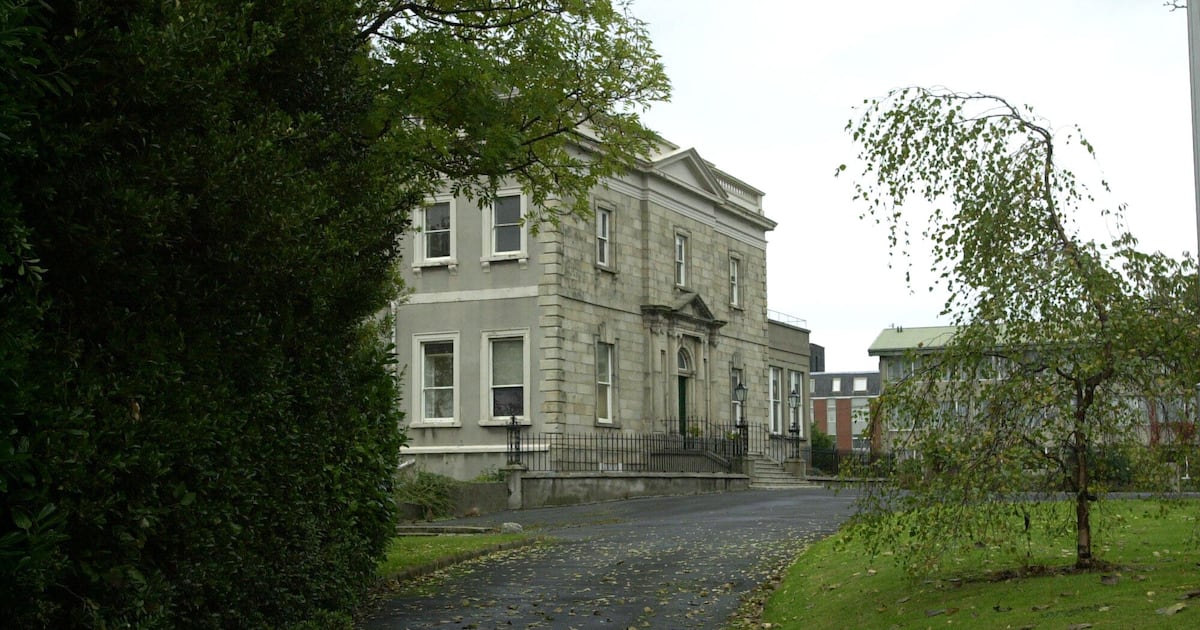Politics
Advocates Demand Recognition for Temple Hill’s Forgotten Legacy

The historical significance of Temple Hill, located in Blackrock, Dublin, has come under scrutiny as advocates call for acknowledgment of its true function as an adoption home for infants. While the Irish Government maintains that Temple Hill served solely as a hospital, many argue that the reality was far more complex. This debate highlights the need for recognition of the experiences of those who were born at Temple Hill, including individuals like Rachel Fehily, who assert that their stories have been overlooked.
Fehily spent her first three months in Temple Hill, officially known as the St Patrick’s Infant and Dietetic Hospital. According to Sinn Féin TD Claire Kerrane, this institution does not qualify for governmental supports or redress because it is classified as a hospital. Yet, she pointed out in a parliamentary question that children were adopted from Temple Hill through advertisements, with many being sent to America. “I have never heard of a hospital that does that,” Kerrane stated, underscoring the inconsistencies in the Government’s stance.
Despite the documented history of adoptions facilitated by the former adoption society St Patrick’s Guild, Temple Hill remains excluded from the Mother and Baby Institutions payment scheme. This exclusion stems from its classification, as it was not included in the initial investigation by the Commission of Investigation into Mother and Baby Homes. The Commission’s report has faced criticism for its narrow focus, leaving many individuals without the recognition and support they deserve.
Fehily, who left Temple Hill with her adoptive parents at the age of three months, emphasizes that her advocacy is for those who were not as fortunate. Many ageing survivors of institutions, who endured abuse and neglect, currently find themselves without access to the supports offered by the scheme. The Irish Human Rights and Equality Commission has echoed these concerns, labeling the commission’s report as flawed due to its exclusion of various institutions.
In light of these issues, Minister for Children, Disability and Equality Norma Foley is set to review the operation of the payment scheme by September 2026, marking two years since its inception. The delay leaves many survivors in a state of uncertainty, with their experiences still unrecognized.
The artistic community has also contributed to the dialogue surrounding Temple Hill. Bernard Canavan, an artist and recipient of the prestigious Presidential Award, recently showcased his work that reflects the trauma endured by residents of such institutions. Canavan, who resided in Temple Hill more than 25 years before Fehily, is similarly excluded from the payment scheme due to contested definitions of his experience.
Educational initiatives are emerging to address this complex history. The National Council for Curriculum and Assessment (NCCA) has developed a comprehensive resource on “mother and baby homes” for the Junior Cycle curriculum, in collaboration with survivor advocacy groups. This curriculum aims to provide students with a deeper understanding of Ireland’s past, encouraging critical thinking regarding the interplay of history and current affairs.
Despite these efforts, there remain significant gaps in the educational materials. While the NCCA has compiled an extensive reading list, it predominantly features official reports that may omit crucial narratives, including those from contested institutions like Temple Hill. Fehily highlights the importance of understanding how governmental definitions influence access to justice, stating that students must learn to question the presentation of their history.
As discussions around these topics continue, the urgency for recognition and acknowledgment of overlooked experiences becomes increasingly significant. The complexities surrounding Temple Hill illustrate the broader implications of how history is interpreted and taught.
Fehily’s advocacy sheds light on the necessity for inclusivity in historical narratives, ensuring that the voices of all who have been affected are heard. As Ireland grapples with its past, it is essential to confront these contested histories and seek justice for those who have long been forgotten.
-

 Top Stories3 months ago
Top Stories3 months agoTributes Surge for 9-Year-Old Leon Briody After Cancer Battle
-

 Entertainment4 months ago
Entertainment4 months agoAimee Osbourne Joins Family for Emotional Tribute to Ozzy
-

 Politics4 months ago
Politics4 months agoDanny Healy-Rae Considers Complaint After Altercation with Garda
-

 Top Stories4 months ago
Top Stories4 months agoIreland Enjoys Summer Heat as Hurricane Erin Approaches Atlantic
-

 World5 months ago
World5 months agoHawaii Commemorates 80 Years Since Hiroshima Bombing with Ceremony
-

 Top Stories3 months ago
Top Stories3 months agoNewcastle West Woman Patricia Foley Found Safe After Urgent Search
-

 Top Stories5 months ago
Top Stories5 months agoFianna Fáil TDs Urgently Consider Maire Geoghegan-Quinn for Presidency
-

 World5 months ago
World5 months agoCouple Convicted of Murdering Two-Year-Old Grandson in Wales
-

 World5 months ago
World5 months agoGaza Aid Distribution Tragedy: 20 Killed Amid Ongoing Violence
-

 World5 months ago
World5 months agoAristocrat Constance Marten and Partner Convicted of Infant Murder
-

 Top Stories4 months ago
Top Stories4 months agoClimbing Errigal: A Must-Do Summer Adventure in Donegal
-

 Top Stories4 months ago
Top Stories4 months agoHike Donegal’s Errigal Mountain NOW for Unforgettable Summer Views









